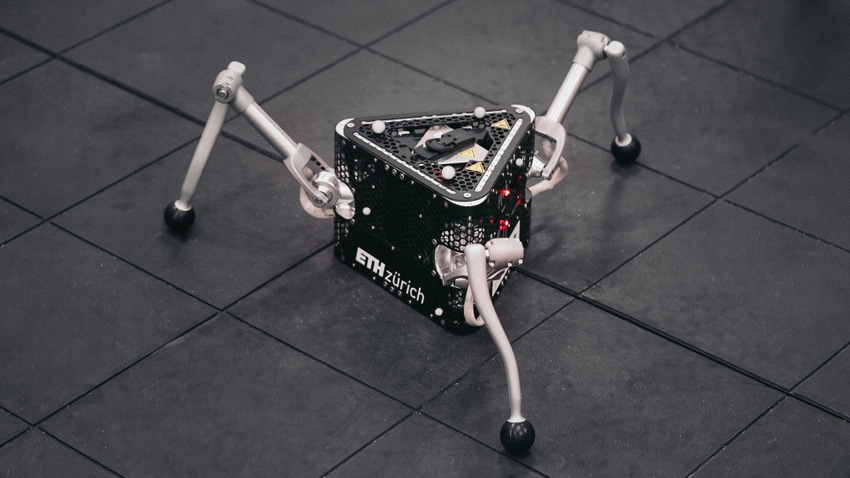Hopping Space Robot Tested in Zero Gravity
The SpaceHopper robot could be used to explore asteroids and moons

A three-legged, hopping robot could one day be used to explore asteroids and moons for precious minerals.
Designed by a team of students from ETH Zurich, the SpaceHopper robot uses a jumping-like motion to navigate through low-gravity environments.
The team recently tested its design in zero-gravity scenarios on a European Space Agency parabolic flight.
Valerio Schelbert, study co-author, said the prototype uses the low levels of gravity on asteroids to propel itself in a certain direction.
“As asteroids have such little gravity, microgravity conditions had to be used for simulation tests on Earth,” Schelbert said.
The project was first launched in 2022 to explore microgravity locomotion and demonstrate robotic applications in this environment, with potential exploration and research purposes.
“There are two reasons to explore an asteroid. First, they offer new insights into the universe and our history. Second, lots of asteroids contain rare earths, which could be of interest to humanity in the future,” said Fabio Buhler, study co-author. “SpaceHopper is designed to show that a legged robot is able to explore asteroids.”
The team said the experiments were very successful, with the robot showcasing its ability to use its legs to reposition itself and jump in a certain direction.
About the Author(s)
You May Also Like


.jpg?width=700&auto=webp&quality=80&disable=upscale)


.png?width=300&auto=webp&quality=80&disable=upscale)
.png?width=300&auto=webp&quality=80&disable=upscale)
.png?width=300&auto=webp&quality=80&disable=upscale)
